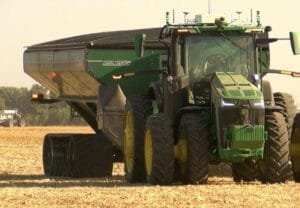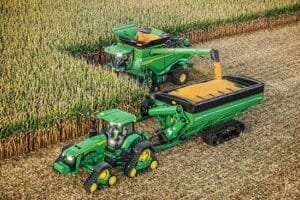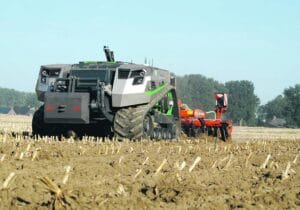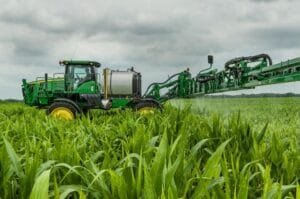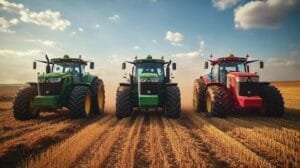As agriculture faces mounting challenges from climate change and labor shortages, Kubota Corporation is pioneering smart farming solutions that merge conventional agricultural expertise with cutting-edge digital technology.Through a combination of autonomous tractors, drone-based monitoring systems, and artificial intelligence-driven crop management, the Japanese manufacturer is transforming conventional fields into data-rich digital environments. This technological evolution represents a significant shift in how farmers approach cultivation, harvest planning, and resource management, promising to reshape the future of global agriculture. Agricultural innovation takes a quantum leap as Kubota Corporation pioneers intelligent farming solutions that seamlessly blend traditional expertise with cutting-edge technology. The Japanese agricultural machinery giant has developed an integrated ecosystem of smart farming tools that transform conventional fields into data-driven production centers.
At the heart of this technological revolution lies Kubota’s Farm Management Data System (KMSI), which utilizes artificial intelligence and machine learning to optimize crop yields.Farmers can access real-time data through mobile applications, enabling precise decision-making for irrigation, fertilization, and pest control. The system analyzes historical weather patterns,soil conditions,and crop performance to generate actionable insights.
Autonomous tractors equipped with GPS guidance systems and obstacle detection capabilities now navigate fields with minimal human intervention. These machines operate with centimeter-level precision, reducing waste and maximizing efficiency. The integration of IoT sensors throughout the field provides continuous monitoring of crucial parameters such as soil moisture, nutrient levels, and plant health.
Drone technology plays a vital role in Kubota’s digital agriculture framework. Multi-spectral imaging drones survey vast agricultural areas, creating detailed maps that highlight variations in crop health and identify potential issues before they become visible to the naked eye. This early warning system allows farmers to address problems proactively, minimizing crop losses and optimizing resource allocation.
The company’s smart irrigation solutions utilize weather forecasts and soil moisture data to deliver precise amounts of water when and where needed. This system has demonstrated water savings of up to 30% while maintaining or improving crop yields. Variable-rate technology enables the precise submission of fertilizers and pesticides, reducing chemical usage and environmental impact.
Kubota’s digital platform facilitates seamless communication between different agricultural machines and systems.Data collected from various sources is consolidated and analyzed to create complete field management strategies. This interconnected approach enables farmers to make informed decisions based on complete and accurate information.
The implementation of blockchain technology ensures transparency and traceability throughout the agricultural supply chain. Consumers can trace their products from field to table, while farmers benefit from improved inventory management and simplified compliance with regulatory requirements.
Machine learning algorithms continuously analyze crop performance data, enabling predictive maintenance of equipment and optimization of farming practices. The system learns from each growing season,gradually improving its recommendations and adapting to changing environmental conditions.
Rural connectivity solutions ensure that these advanced technologies remain accessible even in remote agricultural areas. Kubota’s partnership with telecommunications providers helps establish reliable internet infrastructure, enabling farmers to fully utilize digital farming tools regardless of their location.
These technological innovations represent a significant step toward enduring agriculture, combining increased productivity with environmental stewardship. The integration of digital solutions with traditional farming practices creates a balanced approach that respects agricultural heritage while embracing future possibilities.



